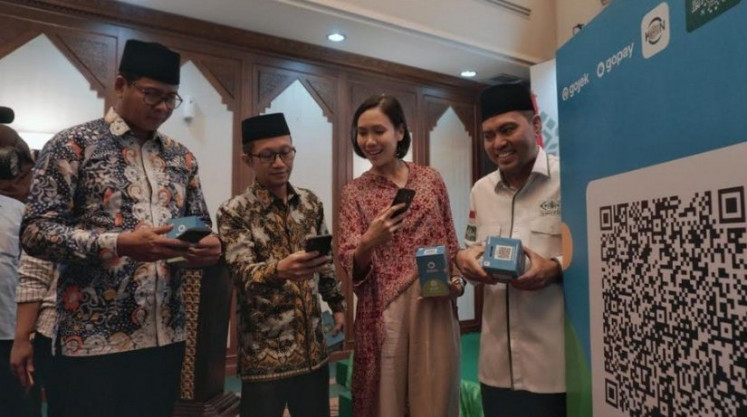
Gojek’s e-wallet, GoPay, has enabled Indonesians to easily donate and help others with their giving. GoPay, which has launched a digital donation platform with Nahdlatul Ulama (NU), is the leading e-wallet in creating a positive social impact with the largest philanthropy network in Indonesia.
Homegrown technology company Gojek has partnered with the country’s largest Muslim organization, Nahdlatul Ulama (NU), to launch a digital donation platform called KOIN NU. Through this platform, Gojek users who want to donate can simply scan national standard QR codes, known as QRIS, with GoPay, the company’s e-wallet.
The partnership – which allows over 90 million NU members to make e-donations more easily, safely and transparently – has strengthened the cooperation between GoPay and NU.
Through the initiative, GoPay and NU are launching thousands of donation boxes – a longtime strategy for NU members across Indonesia – to encourage people to help those in need.
GoPay is the first company to introduce QRIS in the philanthropy sector, and the e-wallet promotes QRIS among NU members. The QRIS code for KOIN NU is also the first use of QRIS in zakat and infaq (Muslim almsgiving).
This initiative aligns with GoPay’s vision and commitment to implement QRIS and expand financial inclusion in Indonesia.
The strategic partnership intends to have a social impact on society, promoting cashless payment among millions of NU members and scaling up the adoption of cashless transactions nationwide.
The partnership underscores the importance of charity in Indonesia. The company launched the GoPay for Good program in 2018 and has collaborated with 400 foundations and NGOs in 41 cities across the country, including NU. This is part of an attempt to enable digital donation services and help to distribute all of the donations to charity partners. Since January 2019, GoPay has facilitated over Rp 63 billion (US$4.5 million) in donations.
A positive social impact has always been part of Gojek’s DNA. The company seeks to accelerate economic growth and improve quality of life for millions of Indonesians through technology.
Earlier this year, Bank Indonesia launched a QRIS code system aiming to universalize cashless payment across the country by allowing users to make payments from different e-wallets. The QRIS implementation will be effective starting from Jan. 1, meaning that every store and merchant must use a single QRIS code for payment instead of multiple QR codes from different e-wallets.
GoPay, a popular e-wallet in Indonesia, is committed to supporting the implementation of QRIS, which had been initiated by Bank Indonesia and the Indonesia Payment Systems Association (ASPI).
Among the examples of GoPay’s support for QRIS is KOIN NU, which stands for Kotak Infaq Nahdlatul Ulama or NU donation boxes, which enable Indonesians to donate with electronic money.
“As the most used electronic money in Indonesia and the leading digital donation provider, we give our full support to the implementation of QRIS in all of our business partners, including the donation partners and food merchants,” said Winny Triswandhani, head of corporate communications at GoPay. “We believe QRIS will make it easier for people to give donations and will provide more payment options.”
Besides facilitating e-donations, the partnership is expected to increase trust in electronic payment systems and cashless financial services for NU members, which will in turn accelerate financial inclusion in Indonesia.
“The partnership between Gojek and NU serves as a good example for other players,” says Ria Swandito of the DKI Jakarta chapter of Bank Indonesia. “This can propel the growth of other existing financial ecosystems in Indonesia. Hopefully, QRIS will cover not only donations but also school tuition and trade purchases.”